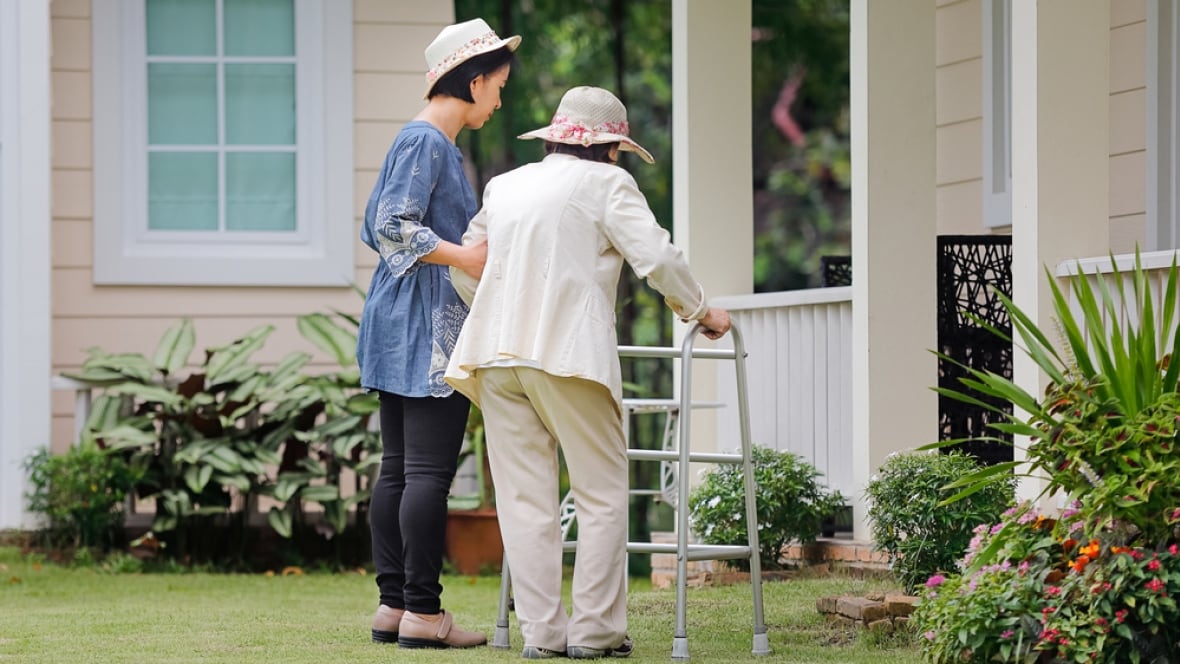Top Stories
Toronto Center Reveals Urgent Insight into Living with Dementia

UPDATE: A pioneering simulation center in Toronto is providing startling insights into the realities of aging and dementia, equipping caregivers with firsthand experience of the challenges faced by their patients. This immersive approach is transforming the way professionals understand and empathize with the elderly.
Just announced, the Baycrest Centre for Education and Knowledge Exchange in Aging is using innovative simulations to help caregivers truly feel what it’s like to live with dementia. As Canada braces for a surge in its aging population, this initiative is more crucial than ever.
Officials project that by 2026, over one in five Canadians will be seniors, with the number of Canadians living with dementia expected to skyrocket by 187 percent between 2020 and 2050, reaching more than 1.7 million individuals. The emotional and physical toll on caregivers is significant, and this program aims to alleviate that strain.
During a recent demonstration, Matt Galloway, host of CBC’s The Current, donned a weighted jumpsuit and restrictive gear designed to simulate the physical limitations of aging. “There’s a real anxiety,” Galloway reported, emphasizing the emotional weight of the experience. This powerful simulation revealed not just the physical difficulties but also the psychological barriers faced by those with dementia.
“We hope that it changes the way that they approach and interact with the people they work with,” said Meaghan Adams, the center’s simulation manager.
The center also employs tablet-based simulations that depict real-life scenarios, such as mistaking a robe for a person, which can evoke fear and confusion. These tools are intended to foster empathy and understanding among caregivers who often confront complex emotional situations.
The urgency of this training is underscored by the fact that over 1.6 million Canadians currently live with frailty, a number expected to exceed 2.5 million in the next decade. As the demographic shifts, one in four Canadians will provide care to a friend or family member, highlighting the necessity for robust support systems.
According to Dr. Samir Sinha, director of health policy research at the National Institute on Ageing, caregiving is a “24/7 job.” He emphasizes the importance of empathy-building simulations. “We should really focus on making sure that we can provide the necessary support in whatever way is possible,” Sinha stated, advocating for practical assistance alongside emotional support.
Adams believes that such simulations are vital for nurturing a compassionate care model. In the fast-paced environment of healthcare, it’s easy to lose sight of the individual behind the diagnosis. “People are in healthcare because they value caring and helping others,” she noted, urging providers to connect with the humanity of their patients.
The emotional impact of these simulations can be profound, often leaving participants in tears as they confront the realities of aging. “You feel something that you wouldn’t if I stood up in front of you and said, ‘Older people have different hearing and different vision,'” Adams explained.
As Canada’s elderly population continues to grow, initiatives like this are crucial in reshaping the landscape of caregiving. By fostering deeper understanding and emotional connections, Baycrest’s program is setting a new standard for how caregivers approach their work, ensuring that the individual stories and preferences of those they care for remain at the forefront of their efforts.
This groundbreaking initiative is not just a training tool; it’s a vital step toward a more humane approach to caregiving, with emotional resonance that will impact both caregivers and their patients for years to come.
-

 Politics4 weeks ago
Politics4 weeks agoSecwepemc First Nation Seeks Aboriginal Title Over Kamloops Area
-

 World5 months ago
World5 months agoScientists Unearth Ancient Antarctic Ice to Unlock Climate Secrets
-

 Entertainment5 months ago
Entertainment5 months agoTrump and McCormick to Announce $70 Billion Energy Investments
-

 Science5 months ago
Science5 months agoFour Astronauts Return to Earth After International Space Station Mission
-

 Lifestyle5 months ago
Lifestyle5 months agoTransLink Launches Food Truck Program to Boost Revenue in Vancouver
-

 Technology3 months ago
Technology3 months agoApple Notes Enhances Functionality with Markdown Support in macOS 26
-

 Lifestyle3 months ago
Lifestyle3 months agoManitoba’s Burger Champion Shines Again Amid Dining Innovations
-

 Top Stories2 months ago
Top Stories2 months agoUrgent Update: Fatal Crash on Highway 99 Claims Life of Pitt Meadows Man
-

 Politics4 months ago
Politics4 months agoUkrainian Tennis Star Elina Svitolina Faces Death Threats Online
-

 Sports5 months ago
Sports5 months agoSearch Underway for Missing Hunter Amid Hokkaido Bear Emergency
-

 Politics5 months ago
Politics5 months agoCarney Engages First Nations Leaders at Development Law Summit
-

 Technology5 months ago
Technology5 months agoFrosthaven Launches Early Access on July 31, 2025



















